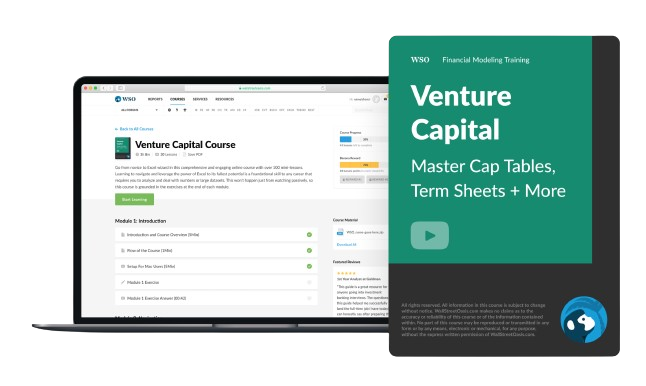Sophisticated Investor
Refers to a person or group of people with extensive knowledge and expertise in financial and commercial affairs and a high net worth that enables them to pursue high-risk investment possibilities
What Is A Sophisticated Investor?
A person or group of people with extensive knowledge and expertise in financial and commercial affairs and a high net worth that enables them to pursue high-risk investment possibilities are referred to as sophisticated investors.
A skilled investor has a specific standing under financial regulation rules, and the court treatment for being categorized as such differs by jurisdiction.
High net-worth investors with a wealth of financial market knowledge are considered sophisticated investors. However, they may be defined differently, depending on the nation or situation.
However, investors must fulfill rules and criteria set out by the Securities and Exchange Commission (SEC) to be considered sophisticated investors.
High net worth and knowledge allow skilled investors to take advantage of investing possibilities that aren't open to ordinary investors.
Becoming a sophisticated investor is often a rather straightforward procedure; a retail investor must fulfill the qualifying requirements and finish the certification process with their accountant.
Understanding A Sophisticated Investor
An investor who qualifies as sophisticated has a high net worth, sophisticated knowledge, and extensive investing experience, which enables them to increase returns and reduce risks in more complex investment possibilities. Several people can be categorized as sophisticated investors, notwithstanding the traditional understanding of what one is.
Due to the opportunity and greater risk tolerance that their net worth and higher salaries afford, such investors participate in investments or business agreements that other investors avoid.
They are qualified for investment options that aren't available to other classes of investors due to their net worth and higher income bracket, such as pre-IPO equities and, in some situations, hedge funds.
Generally speaking, smart investors are individuals who won't need to sell their investments soon and who can even lose money on investment without having it negatively affect their overall net worth.
Data shows that such investors are susceptible to making bad investing decisions despite being held to a higher degree of due diligence and being eligible for accreditation.
The 2008 subprime mortgage financial crisis is a great example of wealthy but unaware investors suffering significant losses.
How To Become A Sophisticated Investor
- Be Disciplined: Be disciplined and set up a specific amount of time each day to manage your finances and stay up to date on the latest news. You should peruse the financial sections of a newspaper or the internet at least once a week. You may also sign up for different periodicals and newsletters. Set sensible priorities. Choose what information to scan, what to read in-depth, and what to save for later.
- Keep Educating Yourself: Adopt a multidisciplinary and interdisciplinary approach to your education. Use as many of the numerous resources that are accessible as you can. For example, use books, magazines, newspapers, radio, T.V., and personal contacts in addition to the internet. Additionally, keep in mind that the world of investing has ramifications for many disciplines, such as law, politics, psychology, and sociology.
- Never trust rumors: The market's information is riddled with rumors, making it difficult for knowledgeable investors to depend on it when making investment decisions. Due diligence is therefore required when making investment decisions regarding complex potential investment possibilities. Deals should occasionally be avoided, especially if they are overly complicated and lack sufficient transparency.
- Understand your Limitations: This relates to your time, interest, motivation, and prior education and experience. The work and dedication are continual because there are constantly new products on the market. Regarding each of the points mentioned above, be sincere with yourself.
Sophisticated And Accredited Investors
Accredited investors are characterized by their extensive business and financial knowledge, competence, and experience and can assess the advantages and hazards of a potential investment.
In the U.S., Regulation D of the Securities and Exchange Commission (SEC) outlines the conditions under which a firm may make private offerings accessible.
These regulations include categories for accredited and sophisticated investors.
A limited number of sophisticated non-accredited investors, defined as those with sufficient knowledge and experience in financial and business matters, enable them to assess the merits and risks of the prospective investment. They are also permitted to participate in private offerings under Rule 506(b) of Regulation D.
According to Rule 501 of Regulation D, a person must either fulfill specific yearly income requirements or have a net worth of more than $1 million, minus the value of their principal residence, to qualify as an accredited investor.
Accredited investors have earned more than $200,000 annually over the past two years, with the expectation of continuing. For example, if a married couple makes a combined income of at least $300,000 annually, they are deemed accredited.
Other organizations, such as banks and insurance firms, corporations, foundations, trusts, and employee benefit plans with assets exceeding $5 million, may also be accredited investors under this regulation.
Bear in mind:
The definition of an accredited investor was changed by the U.S. Securities and Exchange Commission on August 26, 2020.
According to a news statement from the SEC, "In addition to the current requirements for income or net worth, the modifications now allow people to become accredited investors based on specific measures of professional expertise, experience, or certificates.
The revisions further increase the number of organizations that may be accredited investors, among other things, by permitting any organization that satisfies an investing requirement to do so."
The SEC has broadened the definition of accredited investors to include, among other demographics, those with specific professional degrees and those employed by private funds as "knowledgeable employees." It also includes investment counselors duly licensed by the SEC and various states.




or Want to Sign up with your social account?